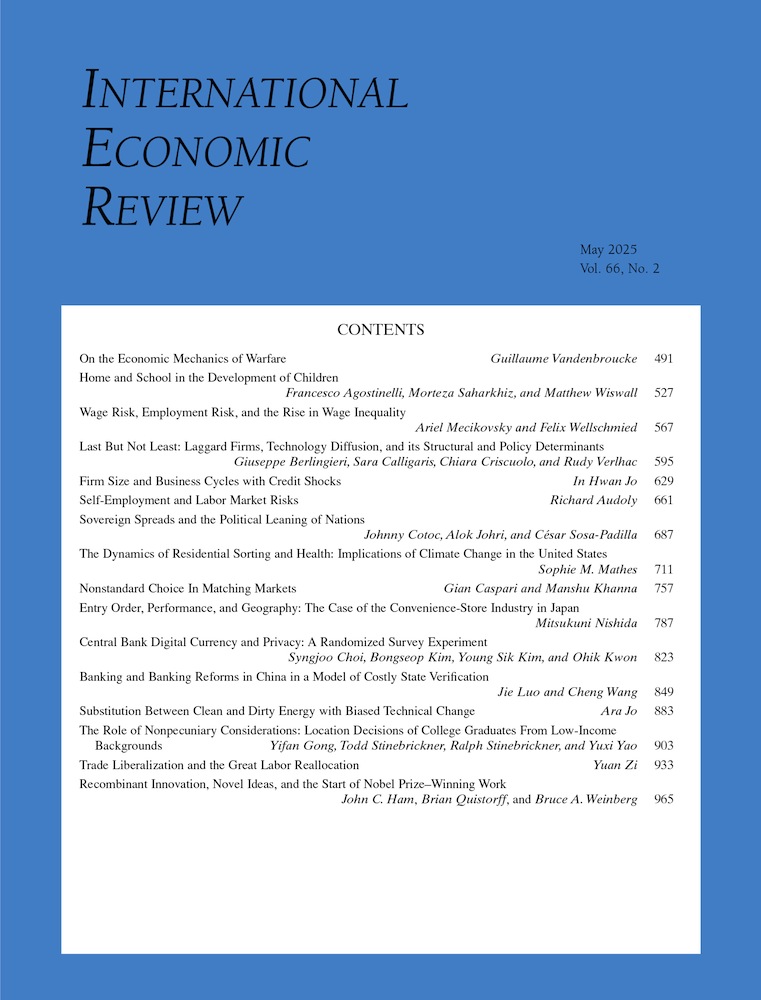On the Efficiency of Decentralized Exchange with Resale Possibilities
Abstract
This paper studies decentralized exchange by bilateral matching and bargaining when resale is possible. Decentralized exchange involves the risk that goods and services may be allocated inefficiently; if low-valuation buyers consume while high-valuation buyers do not, then social welfare is reduced. If resale is possible and transaction costs are negligible, we would nevertheless expect an efficient allocation to result from decentralized exchange. This paper suggests that this depends on the nature of the commodity; while the allocation of a durable good will be efficient, the allocation of a “consumable” good need not.




